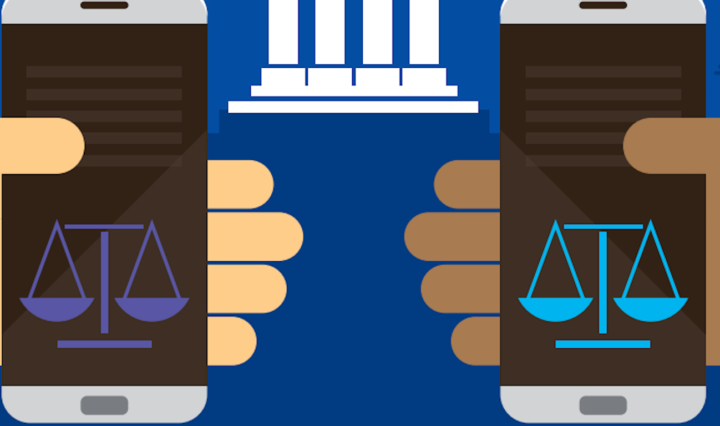New disruptive technology for business allows routine tasks to be automated, driving efficiencies in a number of different sectors and allowing for better cost predictability and service quality for clients. In the legal market, it’s doing away with outdated, manual and time-consuming tasks that are better left to technology.
Innovation Driven by Mobility
According to the American Bar Association, around 90 percent of lawyers use smartphones, and mobile devices aren’t being used just for communications and applications such as email and calendaring, but for a wider range of purposes, including videoconferencing with clients, enhancing trial preparation and taking depositions. Law firm employees can also use smartphones or tablets for recording billable hours to reduce errors and expedite invoicing. Mobile devices also increase productivity for law firm staff by providing immediate access to contract agreements, legal research and case files, whether in the office, in the courtroom or on the go.
Smartphones users across a range of industries enjoy a 34 percent improvement in overall efficiency, according to research by Frost & Sullivan, allowing for greater speed of innovation, more flexible working opportunities, improved quality of collaboration with colleagues and partners, and considerable gains in productivity and accuracy. Moving forward, more legal workloads will be moved onto mobile apps and wearables, and into the cloud.
Digital Transformation in the Legal Sector
While recent research from CBI Insights has found that the use of disruptive technologies in the legal market is still nascent, with legal tech vendors having raised just $739 million in aggregate funding over the past five years, there are significant opportunities for technology to tackle the problems of manual and paper-based processes. Innovative startups are helping solve these challenges by offering digital tools for e-discovery, legal research and notarization, and software for practice management and intellectual property/trademark disclosures. Under considerable pressure to become more cost-effective, law firms are turning to the growing trend of outsourcing time-consuming but less profitable tasks like legal transcription, research and administrative work.
In the legal industry, mobile security is crucial.
This infographic provides five key tactics to mitigate security risks in your firm. Download Now
As the use of mobile, cloud and online technologies continues to soar, so does the amount of data produced, which will bring further opportunities for digital transformation. Lawyers are expanding beyond straight-forward analysis of documents and emails into social media postings and, in the future, information such as geolocation data and feeds from Internet of Things devices. As lawyers increasingly use machine learning capabilities to gain real-time analysis of ever bigger data sets, they’ll develop greater insights. For example, by analyzing large sets of data related to recent case outcomes, lawyers will be able to make better informed decisions regarding whether to take on a case.
A Future of Artificial Intelligence
In a recent keynote speech at the ILTACON Conference, Mike Walsh, CEO of consulting firm Tomorrow, spoke of how the coming generation of clients and employees born into an era of mobile platforms and real-time applications will see greater use of disruptive technology such as artificial intelligence, mobile apps and wearables across industries — including in the legal field. For example, the DoNotPay service, which was originally designed for contesting parking fines in London and New York, touts itself as the world’s first robot lawyer service. This artificial intelligence-driven lawyer chatbot service uses a chat-like interface to guide users through a series of simple automated questions to gauge whether a parking appeal is possible without the need for human lawyers.
LexisNexis DiscoveryIQ estimates that use of smart analytics will help shave 70 percent off expenditures involved in legal reviews, partly by sifting out irrelevant documents in the legal pre-discovery process so that there are 85 percent fewer documents to be reviewed.
Although technology innovations in the legal market have some way to go, recent developments illustrate their ability to drive efficiency and improve productivity in a number of different sectors in the legal industry.
Our legal technology solutions will help your firm stay ahead of the latest industry trends.









